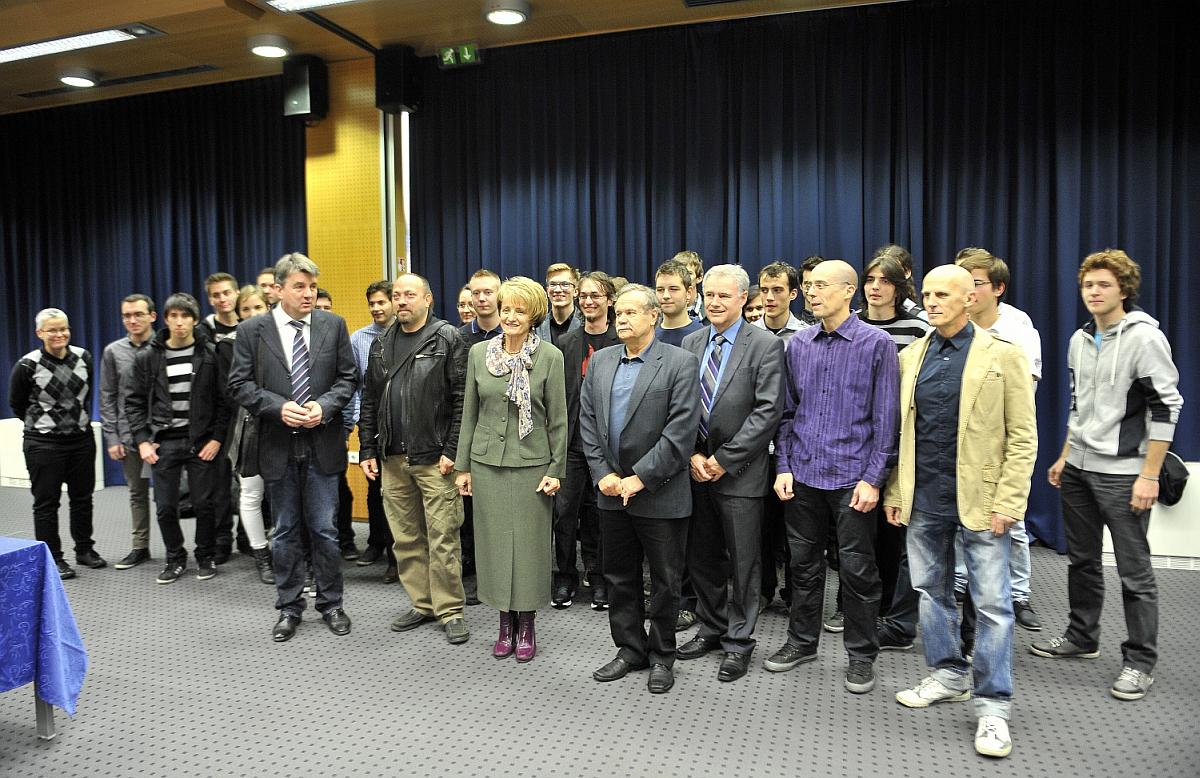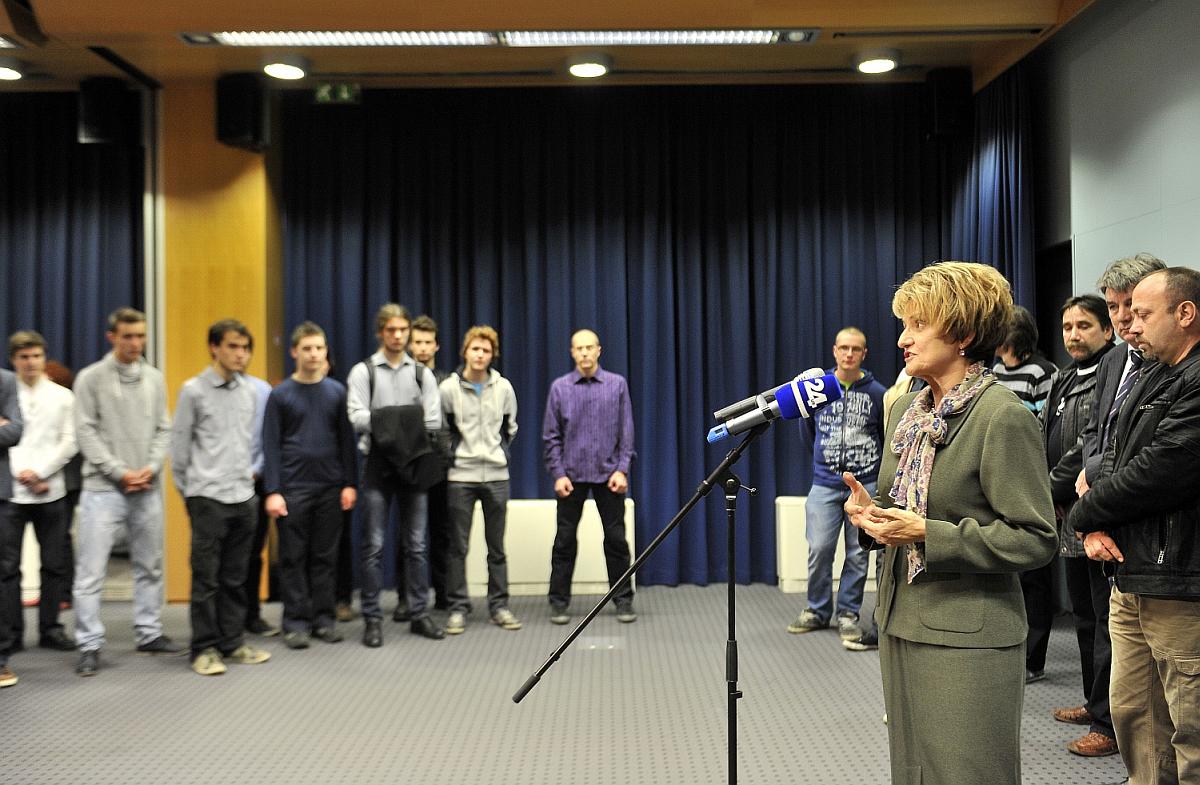

"
The new Minister of Education, Science and Sport, Stanka Setnikar Cankar, received 52 high school students and 16 mentors, which represented Slovenia at international knowledge Olympiads around the world. The minister stressed that the students represent the best of Slovenia’s education system, and are at the same time proof of the system's quality.
Young scientists, biologists, computer scientists, linguists, chemists, physicists, mathematicians, astrophysicists and geographers took part at competitions abroad - their destinations were China, Taiwan, Indonesia, Poland, Slovakia, Greece … And they brought home a considerable collection of medals and recognitions.
This morning, the President of Slovenia, Borut Pahor, took honorary patronage over the initiators of the Inženirji bomo! (We will be engineers!) project and its participating high schools. As part of the project, the initiators and participating companies visit high school students and try to raise their interest for continuing their studies in the fields of technology and natural sciences.
Less stimulation for natural sciences in the past
Could it be that the country has been putting too much emphasis on the promotion of natural sciences, as critics like to point out? In his address during the awarding of the honorary patronage, President Pahor stressed that the young must not be attracted to technical studies and natural sciences by stressing their employment opportunities, but through inspiration and stimulation. "I wouldn’t say that we overly support these fields, because in past years there was much less support for natural sciences," stated the Minister of Education, Science and Sport, Stanka Setnikar Cankar, for MMC.
She is convinced that every educational institution must promote that which it offers to the young. Only in this way can students get acquainted with the programmes and required competences. In this way students are able to choose their right professional paths. The minister explained that they were also continuing with their work on preparing the new Higher Education Act. One of the topics which they have opened is "ways of directing the young into programmes which are more in accordance with their knowledge and interests."
The minister thinks it would be wise to reconsider the way we help the young select their study programmes, in order for them to complete those programmes successfully. The ministry’s aim is to increase the rate of success during studies, abolish fictitious enrollments, and decrease the number of students who choose a certain study programme only for obtaining a student status.
Parents' interests are largely present after finishing primary school
And how does the ministry plan to achieve its plans? "A good indicator will be the discussion in the frameworks of our continued work on the Higher Education Act - I am convinced that our competent partners, from the ranks of the university and the Slovenian Quality Assurance Agency for Higher Education, and the students, will be able to come up with measures, stimulations and ways to make young people choose programmes which really interest them, and for which they already possess some knowledge, and above all, interest," the minister explained the ministry's intentions regarding motivating high school students.
"Regarding helping students orientate after finishing primary school, the interests of their parents still play a big role. That is why we will, to a larger degree, include parents in the group which will be preparing changes for the primary school level. One of the guidelines will of course be to determine those interests and fields of knowledge which are close to today's young people," she emphasized.
The “Gimnazija” (Gymnasium) still offers more possibilities for a future path
The minister says they will not completely cut the interest for the general high school programme – the “gimnazija” gymnasium, "because it offers much more possibilities for a student's future path."
"At the moment it seems we are experiencing a renaissance connected to natural sciences and technology at the high school level. More so than in the past, young people show a growing interest for these fields, and that’s why we should bring them closer to students. We have already talked to the Slovene Academy of Engineering and the Slovenian Academy of Sciences and Arts in order to arrange visits from experts from those fields to primary and secondary schools and encourage the young to continue their studies. With that I by no means wish to compare or neglect the excellent opportunities that our social sciences offer as well," the minister stressed.

































































